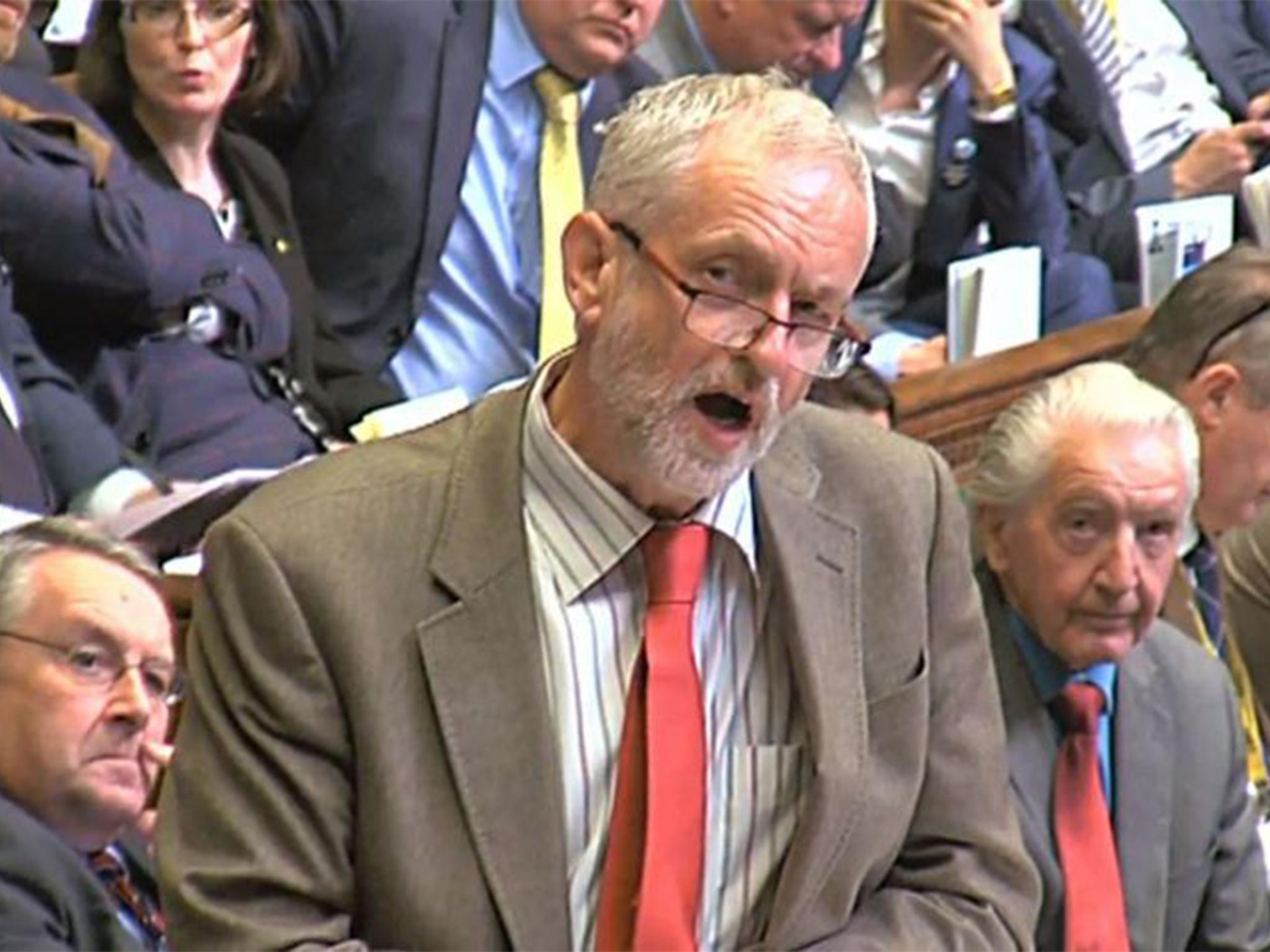Your support helps us to tell the story
From reproductive rights to climate change to Big Tech, The Independent is on the ground when the story is developing. Whether it's investigating the financials of Elon Musk's pro-Trump PAC or producing our latest documentary, 'The A Word', which shines a light on the American women fighting for reproductive rights, we know how important it is to parse out the facts from the messaging.
At such a critical moment in US history, we need reporters on the ground. Your donation allows us to keep sending journalists to speak to both sides of the story.
The Independent is trusted by Americans across the entire political spectrum. And unlike many other quality news outlets, we choose not to lock Americans out of our reporting and analysis with paywalls. We believe quality journalism should be available to everyone, paid for by those who can afford it.
Your support makes all the difference.A new Prime Minister’s first statement to the house still counts as a quiet day in these rarefied times. And as she quietly assured her peers that, yes, she would be happy to kill hundreds of thousands of people, the old Prime Minister up on the back benches offered little more than a half-interested blink.
It was hardly a big deal, anyway. All that was being discussed was whether the nation should or shouldn’t maintain its capacity to end the world as we know it, through renewing its Trident nuclear submarines. In at the shallow end, then.
Nobody, it is conjectured, wants entirely to end the world, so a degree of mystery on the part of those with the finger on the red button is strategically useful. If you tell your enemy you’ll never use it, as Jeremy Corbyn did earlier this year, your ultimate deterrent ultimately loses its power to deter. As Sir Humphrey put it to Prime Minister Hacker: “They probably certainly know that you probably wouldn't [use it], they don't certainly know that, although you probably wouldn't, there is no probability that you certainly would.”
Ms May was more reassuringly succinct. George Kerevan of the SNP asked her: “Is she prepared to authorise a nuclear strike that would kill hundreds of thousands of men women and children?” Her reply: “Yes.”
So that was them told.
The May supremacy is not going to be one of soaring oratory. That much has always been clear and never now clearer. Probably, that is just as well. In the last days of June, it appeared that the nation was destined for something it had never had before.
Government by newspaper columnist, led by two men, Gove and Johnson, who had campaigned like men (one moreso than the other) who failed to see the distinction between a clever argument, cleverly deployed, and the difficult business of government. We have ended up with something very different. A ‘bloody difficult woman’ whose every public statement thus far has included the words ‘getting on with the job’.
When it came to it, Jeremy Corbyn was just as unambiguous in his reply: “I would not take a decision to kill millions of people.”
But if Corbyn definitely knows that he definitely wouldn’t, his backbenchers made it clear that they definitely would, a situation once jovially known as mutually assured destruction, and which lives on in these post Cold War days, through the Parliamentary Labour Party.
John Woodcock went first, getting in even before Jeremy Corbyn, to assure the Prime Minister that ‘whatever you hear from these front benches later’, the Labour Party position is to maintain the permanent at-sea deterrent.
Mr Corbyn barely spoke for more than a minute without giving way to a member of his own party, to be told his views were not the views, or the policy of the party.
David Cameron stayed for the first few then quietly slipped away. Not his problem anymore.
The more prescient question, and one which was scarcely debated, was whether nuclear submarine technology will be obsolete long before the intended lifespan of this latest round of submarine renewal. Improvements in surveillance technology will eventually mean even the deep ocean is no place to hide. Adversarial, democratic politics does not always cope well with such details. Times change.
In the old days, 80 per cent of a parliamentary party declaring they have no confidence in a leader used to be enough to get rid of him. But, like a cockroach emerging after nuclear winter, Corbyn lives on. Obsolete, of course, but alive.


Join our commenting forum
Join thought-provoking conversations, follow other Independent readers and see their replies
Comments